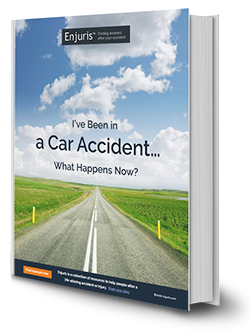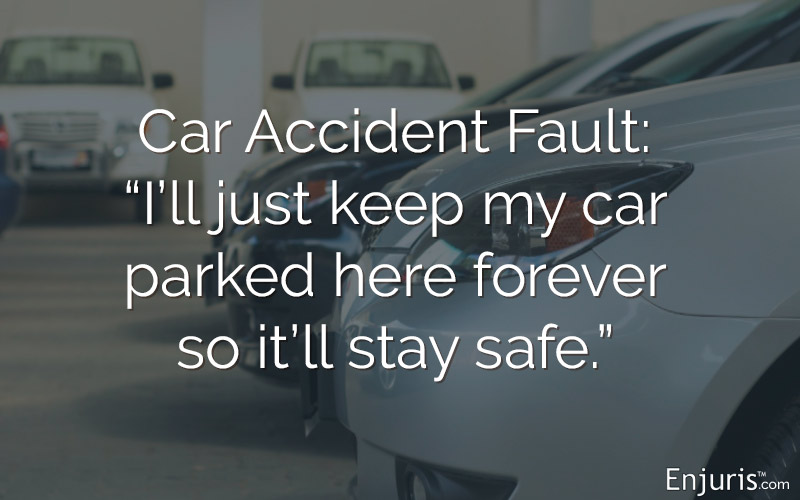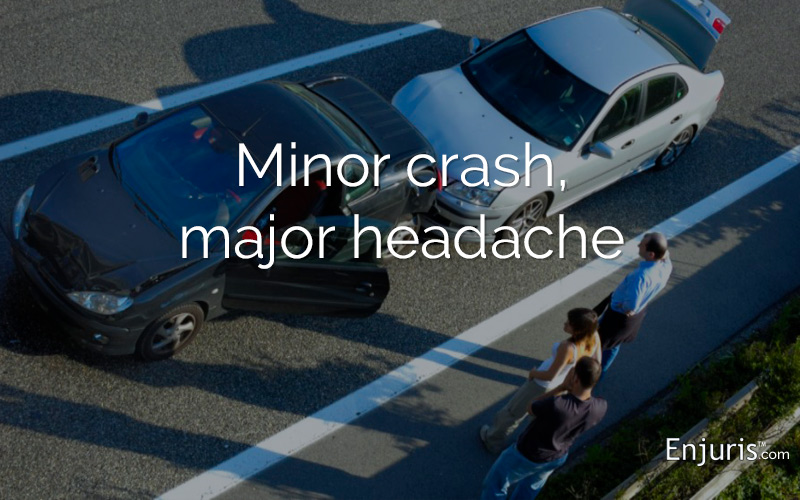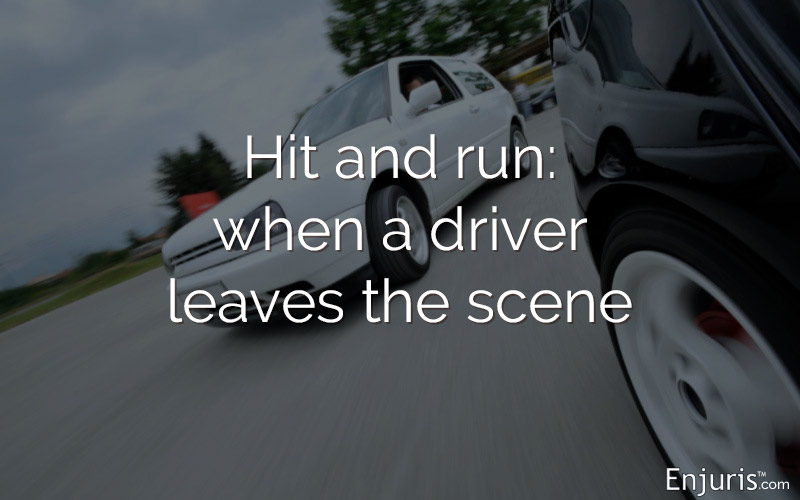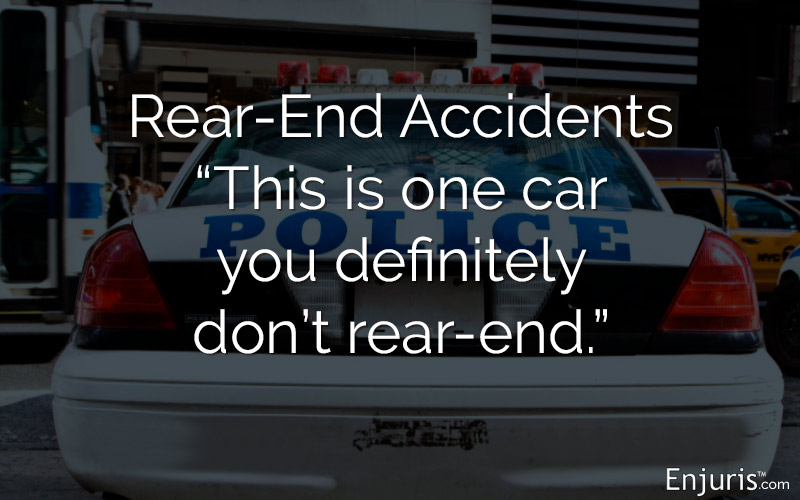Find out about Nebraska car accident laws and insurance requirements
A car accident can be devastating — or a minor inconvenience. Either way, how you recover damages is based on the Nebraska fault system and insurance laws. Here’s everything you need to know about handling a Nebraska car accident.
Do you live in the Cornhusker State? Or travel there for work or recreation? Nebraska’s largest industry is food processing, including beef production. Other primary industries include electrical machinery manufacturing, primary metals and transportation equipment.
If you’re there for fun, you might be checking out Chimney Rock, the Henry Doorly Zoo or the Museum of American Speed, to name a few.
But if you’re traveling by car in any state, it’s a good idea to know the state’s traffic laws and rules before you go because each state handles car accidents a little differently.
Nebraska car accident laws
Nebraska is an at-fault state
Also known as a “tort” state, this means that the person who is at fault for causing an accident is responsible for paying the costs associated with the accident.
It also follows the Modified Comparative Fault Rule, also known as the 50% Rule. The plaintiff (injured person) must be 50% or less at fault in order to recover any damages. If that’s the case, the plaintiff may recover damages, but they are reduced according to the plaintiff’s percentage of fault. In most instances, even though the defendant might have clearly caused the accident, the plaintiff might have had an opportunity to avoid the accident if they had acted differently in the moment.
For instance, if the defendant crossed the double-yellow line into the plaintiff’s lane, could the plaintiff have swerved out of the way if they’d reacted more quickly? If the defendant made a left turn and hit the plaintiff, who was approaching from their left, could the plaintiff have braked a moment sooner and avoided the collision?
These are the types of questions insurance companies and the courts will answer as they assess who is liable and for what percentage of the accident. If the court determines that the defendant was 80% liable and the plaintiff was 20% liable, then the plaintiff may collect 80% of their assessed damages. But if the plaintiff is 51% liable, they may not collect any damages.
Nebraska statute of limitations for a car accident injury
The statute of limitations is the amount of time in which you may file a lawsuit following an injury. Under Nebraska Revised Statute 25-207, you may file a court claim within four years of the date of an accident.
However, it’s important to note that this is only for a lawsuit, not an insurance claim. Insurance companies have their own deadlines, and sometimes they are days to weeks following an accident, in which to make a claim. It’s crucial to report an accident to your insurer as soon as possible.
If you’ve been in an accident, your first priority is to seek medical treatment. Your second is to make a report to the insurance company. Even if you aren’t sure if you’re going to use insurance for the damages (i.e. if you might decide to pay out of pocket), a report is different from a claim. Make the report right away, and figure out the logistics of the claim later, if you need to. You also should report to your own insurance company so they can pursue your claim with the at-fault driver’s insurance company.
Nebraska car insurance requirements
The Nebraska requirements for automotive insurance are as follows:
- Bodily injury liability coverage: $25,000 per person and $50,000 per accident
- Property damage liability coverage: $25,000
- Uninsured motorist bodily injury coverage: $25,000 per person and $50,000 per accident
- Underinsured motorist bodily injury coverage: $25,000 per person and $50,000 per accident
Nebraska license rules for teen drivers
| School permit | A teen may drive at age 14 if they live or attend school outside a metropolitan area. A school learner’s permit (SLE) allows them to prepare for a school permit. After two months with an LPE, they may apply for a school permit to drive back and forth to school with the supervision of a licensed driver age 21 or older. |
| Learner’s permit | A Nebraska teen may apply for a learner’s permit at age 15 and may practice driving with a licensed driver age 21 or older. |
| Provisional operator’s permit | A 16-year-old may apply for a provisional operator’s permit (POP) if they have had a learner’s permit or school permit for at least six months and complete a minimum of 50 hours of driving, 10 of which are at night. They must be supervised by a driver who is age 21 or older and may not carry more than one passenger who is under 19 and not a family member. They may not drive from midnight to 6:00 a.m. unless it is for the purpose of school or work. |
| Operator’s license | A Nebraska driver who has had a POP for at least one year and does not have three or more points on their record, and who is 17 years old, may apply for an operator’s license with no restrictions. |
What to do after a Nebraska car accident
- Call 911. Your first call should be to emergency responders. Whether the accident is minor or serious, call the police. Tell dispatch whether or not an ambulance is needed, but request that the police respond to the scene either way.
- Move your car out of traffic if possible. Sometimes the position of cars relative to each other helps determine how a crash happened. Before moving your car (or before the other driver moves theirs), take several photos of various angles of the scene in order to preserve evidence. If the cars aren’t blocking traffic, leave them where they are after a crash. Only move the car if it’s preventing the flow of traffic.
- Obtain information from other drivers. Make sure to get the necessary information from each involved driver. A police report should include most of it, but also you want to have a copy to provide to your lawyer.
Try to write down or photograph the following information:- Driver’s name and driver’s license number
- Driver’s full contact information, including address, phone, and email
- Vehicle registration and insurance information
- License plate number
- Make, model, and color of each car involved in the accident
- Gather evidence. As mentioned above, photos of the scene and obtaining contact information from witnesses can make or break your case. You can never get too much. Not every photo or every witness account will be relevant, but there might be things that your lawyer sees that do matter that you don’t realize. Let your lawyer determine what’s important and what’s not.
- Notify your insurance company. A “report” is not the same as a “claim.” Your insurance company likely requires you to report an accident within a certain period of time. But even with your own insurance company, don’t say anything that would indicate fault. Stick to basics — when and where the accident took place, and who was involved. Don’t give permission for them to record a statement.
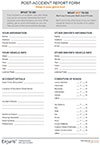
Sample post-accident report form to keep in your glove box - fill out at the scene or as soon as you can after a car accident
Download in PDF format
When to call a Nebraska personal injury lawyer
If you’ve been involved in a Nebraska car accident, it could be worthwhile to seek the guidance of an experienced, qualified, compassionate personal injury lawyer.
Since determining fault can be subjective and based on the interpretation of evidence, the amount of damages you receive can be largely based on the quality of your negotiations with the insurance company or your arguments in court. That’s why hiring a skilled and experienced Nebraska car accident lawyer can be your best bet for ensuring that you receive the full amount of compensation.
Whether you were the at-fault driver or not, lawyers aren’t just for lawsuits. They negotiate insurance settlements, too.
Why is this important?
Your insurance adjuster is not on your side—even though it might seem like they are.
Remember this: Yes, you are their customer if it’s your own insurance policy. But the customer isn’t always right. The insurance company makes a profit when it pays out less in settlements than it earns from premiums. The insurance adjuster’s job is to get you to accept the smallest payout possible to close your file. They’re not trying to help you, they’re trying to save their employer money.
Your lawyer only earns money if you do. Most personal injury lawyers work on a contingency basis, which means they earn a percentage of your insurance payout or damage award. The more you receive, the more they earn. Their incentive is to get you the most money possible.
Your lawyer can help you minimize your amount of fault in a crash, ensure you’re getting enough of a settlement to cover your costs, and analyze your future needs to cover those, as well.
Still not finding what you need?
Check out our other articles on motor vehicle accidents in nebraska.
Did you know that car accident law varies by state?
Hurt in a car crash? You may find these resources helpful
Need a lawyer?
What does an injury lawyer do?
A personal injury lawyer helps individuals who have sustained injuries in accidents to recover financial compensation. These funds are often needed to pay for medical treatment, make up for lost wages and provide compensation for injuries suffered. Sometimes a case that seems simple at first may become more complicated. In these cases, consider hiring an experienced personal injury lawyer. Read more
Common car accidents
